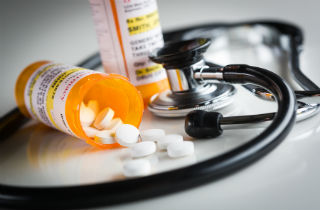Drug vs. alcohol problems for health care workers?
Studies have shown (see reference sources below) that health care professionals struggle with drugs more than alcohol. In fact, there is a higher incidence of addiction to prescription medications than to illegal or illicit drugs such as marijuana and cocaine.
Addiction to prescription medications
Anyone who works in the medical field is surrounded by medications daily. Most health care workers have a vast knowledge of medications. They understand how they work, why they work and what the effects of the meds are. Because of that knowledge, many doctors and nurses fall victim to addiction. They feel they understand the medications, so they can’t fall victim to it. They think they can handle it.
Top 10 prescription medication drugs abused by medical providers
There are three categories of medications that health care providers tend to abuse: sedatives, opiates and benzodiazepines. Following is a detailed description og medications most likely to be abused by medical staff. But first, we provide an alphabetic list of the brand names for particular drugs used most by medical workers.
1. Ativan
2. Demerol
3. Dilaudid
4. Diprovan (Propofol)
5. Fentanyl
6. Morphine
7. OxyContin
8. Percocet
9. Vicodin
10. Xanax
Sedative abuse by health care workers
The main sedative that is abused is Propofol, or Diprovan. It is used by anesthesia as well as on ventilator patients. It comes in IV form and is known for its hypnotic effects. Anesthesiologists tend to abuse this med the most.
Benzodiazepine abuse by medical staff
Benzodiazepines are used to help alleviate anxiety and for panic disorders. Xanax is on medication that is frequently abused. It is mainly used for anxiety. Another benzo that is highly abused is Ativan. It is used for anxiety, insomnia and as an adjunct with anesthesia.
Opiate abuse by healthcare professionals
Opiates are the most frequently used medications and are the most highly addictive of the three categories. They come in many forms.
Vicodin, Percocet and Oxycontin are oral narcotics that are abused the most. They are all used to alleviate pain. Many times, they are abused because of the euphoric effect they produce. One serious problem, besides its potential for addiction is that Vicodin and Percocet also have Tylenol in them. High doses of Tylenol can damage the liver, so when someone abuses pain medications with Tylenol in them, there is lasting effects on the liver.
Dilaudid, Morphine and Demerol are pain medications that come in both pill form as well as IV form. Many health care workers abuse the IV form of these medications. They are used often in the hospital setting.
Fentanyl is an opiate used for both pain and as an adjunct to anesthesia. Fentanyl is the most potent of all the opiates mentioned here. It comes in IV form as well as in patches. An example is a Duragesic patch. This medication is another one that is highly abused by anesthesiologists. Because of the high potency of Fentanyl, it has the highest potential of overdose.
Doctors, nurses, and pharmacists need special support for addiction
Health care workers who suffer from addiction have to work very hard at their recovery if they want to work in a hospital setting because they are around these highly addictive medications every time they go to work. They must have a good support system and a strong recovery foundation to return to the work they love.
Do you think that you have a problem with prescription medications?









Related Posts